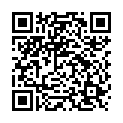|
|
|
| Module code: MAB_19_A_1.07.ENB |
|
|
1V+3P (4 hours per week) |
|
5 |
| Semester: 1 |
| Mandatory course: yes |
Language of instruction:
German |
Assessment:
Note on SIM registration: Please ensure that you add the following two P numbers to your “basket”:
P241-0245: Practical exam (pass/fail) / Praktische Prüfung (ergibt bestanden / nicht bestanden)
P241-0244: Exam = Project work with written report (results in a grade) / Klausur = Projektarbeit mit Ausarbeitung (ergibt eine Note)
This module is based on projects described in a "guideline" (scope of work approx. 60 time hours each for 7 working meetings with preparation / follow-up) from the fields of mechanical and process engineering:
Each student must prepare a paper/documentation/test report/report for each project:
up to 5 - 6 pages of content (= text in font size 11 with informative illustrations, at least one table with explanations, at least one diagram with explanations) plus indexes and appendix. To do so, students will use what they have learned and the WORD template from the "Technical Documentation" module.
Deadline: March 31st 2025 The exact submission period will be announced in good time.
Students must create an informative, entertaining video clip (duration 1 to 2 minutes) for each project. The clip should be suitable for an "application". The video clip is teamwork.
Feedback discussion with supervisor.
Submission of project results:
Each project team saves the results for each project on a separate USB stick. One stick for project 1 and another stick for project 2.
These sticks should contain the following, clearly organized:
The individual reports on projects 1 and 2.
The video clips on projects 1 and 2.
The presentation on project 2.
The USB sticks must be attached to a piece of cardboard (or sturdy paper) in DIN A4 format so that they cannot be lost but are easy to remove.
The cardboard should be labeled with: Degree program, module name, semester, project name, team member names, and their student ID numbers.
You can make the cardboard (or sturdy paper) yourself inexpensively and creatively from old materials.
[updated 29.08.2025]
|
MAB_19_A_1.07.ENB (P241-0244, P241-0245) Mechanical and Process Engineering, Bachelor, ASPO 01.10.2019
, semester 1, mandatory course
MAB_24_A_1.07.ENB Mechanical and Process Engineering, Bachelor, SO 01.10.2024
, semester 1, mandatory course
|
60 class hours (= 45 clock hours) over a 15-week period.
The total student study time is 150 hours (equivalent to 5 ECTS credits).
There are therefore 105 hours available for class preparation and follow-up work and exam preparation.
|
Recommended prerequisites (modules):
None.
|
Recommended as prerequisite for:
MAB_19_A_3.04.SKS Engineering Fluid Mechanics, Piston Engines, Compressors and Turbines
MAB_19_A_4.02.WFL Heat Transfer and Fluid Mechanics
MAB_19_V_3.08.GBT Fundamentals of Biotechnology
MAB_19_V_4.08.BUV Environmental and Bioprocess Engineering with Lab
[updated 04.10.2024]
|
Module coordinator:
Prof. Dr. Bernd Heidemann |
Lecturer:
Prof. Dr. Matthias Faust (project)
Prof. Dr.-Ing. Jochen Gessat (project)
Dipl.-Ing. (FH) Abbas Farshi (project)
M.Eng. Julian Guckert (project)
M.Eng. Mirco Hißler (project)
[updated 22.01.2026]
|
Learning outcomes:
After successfully completing this course, students will be familiar with the curriculum and be able to explain relevance to the mechanical/process engineering education.
Students will be aware of the interdisciplinary connections between the individual courses in the study program (modules).
They will have initial insight into practical engineering activities.
They will be able to integrate themselves into a group, organize projects and develop independent working methods.
Students will be familiar with the standard work methodology and be able to apply it.
Students will be able to approach simple technical problems, solve them, and reach a conclusion.
Students will be able to give a short presentation in front of a larger audience.
[updated 29.08.2025]
|
Module content:
Informative, introductory lectures:
“Einführung in den Maschinenbau” (Introduction to mechanical engineering) lecture (ca. 60-90 minutes)
“Einführung in die Verfahrenstechnik” (Introduction to process engineering) lecture (ca. 60-90 minutes)
"Ingenieurstätigkeiten in der Berufspraxis im Maschinenbau” (Engineering activities in professional mechanical engineering practice) company lecture (90 - 120 minutes)
"Ingenieurstätigkeiten in der Berufspraxis in der Verfahrenstechnik” (Engineering activities in professional process engineering practice) company lecture (90 - 120 minutes)
If possible, further presentations from professional engineering practice.
Two projects per team as described above.
[updated 29.08.2025]
|
Teaching methods/Media:
In small groups, students will work on projects described in a "guideline" by means of simple tasks that demonstrate the range of mechanical engineering / process engineering content and typical activities carried out in the fields.
The projects promote creativity and analytical skills. They are designed to allow students to experience how much fun these activities are and the how rewarding it is to achieve results.
With simple structures, built/developed by themselves, they will analyze engineering-relevant topics and thus, create connections to the curriculum’s content. Students will be encouraged to actively seek any other knowledge they require from other teaching staff members at the htw saar.
The projects will be accompanied and supervised by teachers who, as a point of reference, can also provide mentoring.
[updated 30.10.2023]
|
Recommended or required reading:
Project-specific literature
Johannes Müller: Arbeitsmethoden der Technikwissenschaften
[updated 30.10.2023]
|

